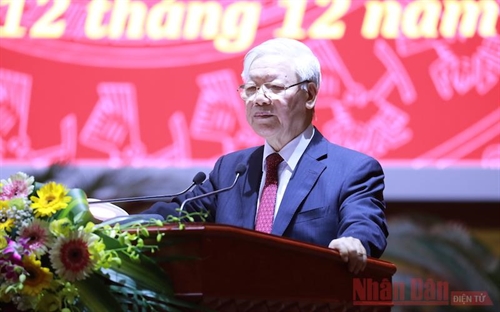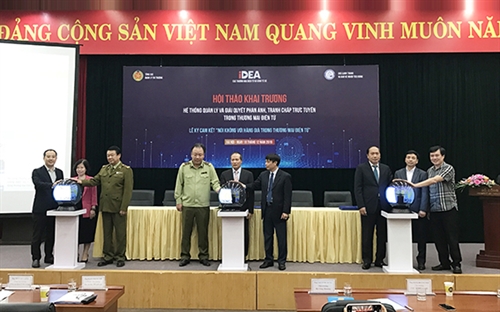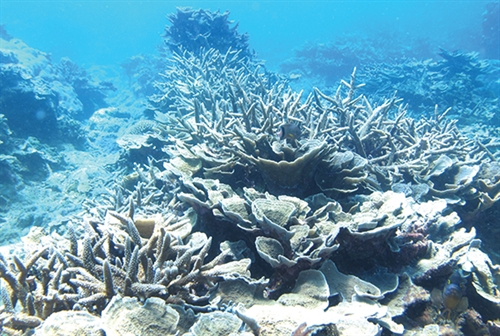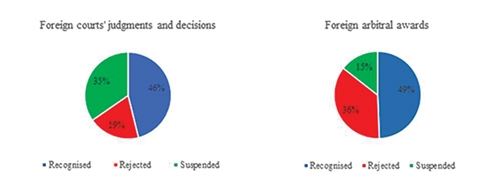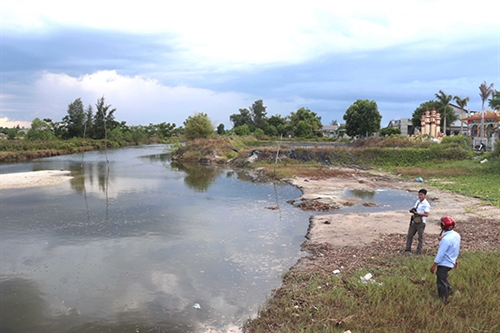Nguyen Hong Thao and Nguyen Thi Lan Huong [1]
Five years ago, on July 12, 2016, an international tribunal in the Hague issued its final award in favor of the Philippines against China and addressed a number of legal questions in the South China Sea (known as East Sea in Vietnam). On that day, Former President Benigno Aquino III said that the historic ruling was a “victory for all” and “the long-running dispute is now closer to having a permanent solution.”[2] Five years have passed, given that the South China Sea situation remains unresolved and China still rejects the arbitration, this landmark decision has inspired numerous discussions on legal issues and has been considered providing a legal background for the maritime activities taken by various countries in the South China Sea.
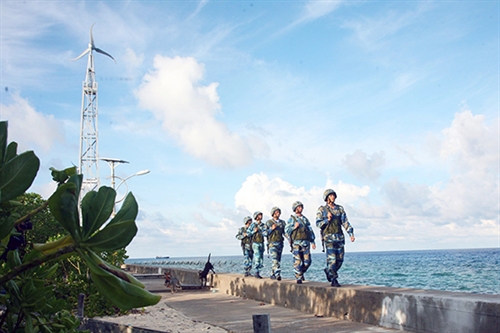 |
A patrol of naval soldiers on an island of the Truong Sa archipelago__Photo: Hoang Hai/VNA |
Quick fact
On January 22, 2013, the Philippines instituted arbitral proceedings against China under Annex VII of the 1982 Convention on the Law of the Sea (UNCLOS), called the South China Sea Arbitration case. The Arbitral Tribunal issued two awards: the first one was relating to Jurisdiction and Admissibility dated October 29, 2015. On July 12, 2016, the arbitral tribunal rendered a second and final award on the merits (the Award) which addressed various questions submitted by the Philippines.[3] Its main conclusions are summarized below:
First, the Award confirmed the universal and unified character of UNCLOS, which established a legal framework for different regimes of maritime zones and lawful activities at sea. Accordingly, coastal states’ rights and obligations were governed by UNCLOS, therefore, any maritime claims inconsistent with UNCLOS should be rejected.[4]
Second, it gave clear explanations of the legal regime of exclusive economic zones and historic rights.[5] The Award affirmed that UNCLOS superseded any historic rights or other sovereign rights or jurisdiction in excess of the limits imposed therein,[6] and that China’s “nine-dash line” claim in the South China Sea was invalid.
Third, the Award marked the first time that an international juridical body has clarified Article 121.3 of UNCLOS on the definition of “Rocks”. As such, the decision helped provide a clear picture of the disputes in the Spratlys and Scarborough Shoal by way of establishing that all the high-tide features in the South China Sea could have only12-nautical-mile territorial seas;[7] and low-tide elevations (LTEs) or submerged features are not subjects of appropriation and do not generate entitlement to maritime zones.[8]
Fourth, it confirmed that any application of archipelagic straight baselines to the Spratly islands would be contrary to UNCLOS.[9]
Fifth, the Award reaffirmed the obligation of all the States Parties to UNCLOS to protect and preserve the marine environment, and made it clear that any harmful activities to the South China Sea coral reef habitat, such as dredging and artificial island-building and construction activities, should be denounced.[10]
Sixth, the deduction from the Award’s conclusions on the status of insular features provided for the possibility of application of the high seas and Area regimes to a certain part in the center of the South China Sea.
Crucial implications for the South China Sea legal background
With these conclusions, the Award has contributed greatly to the development of the international law of the sea and advanced the legal debate on the South China Sea issues in many ways.
By stipulating that maritime features in the Spratlys could not generate exclusive economic zones or continental shelf, the Award helped minimize the areas of disputes in the South China Sea and provided a basis for the delimitation of overlapping maritime zones there. The Award apparently provided the impetus to Malaysia’s decision on December 12, 2019, to lodge a partial submission for an extended continental shelf from its baselines in the northern part of the South China Sea with the United Nations Commission on the Limits of the Continental Shelf. This submission is admissible only if it does not create overlaps between the extended continental shelf claimed by Malaysia and those claimed by Vietnam and the Philippines.
The Award has served as a legal guideline for all concerned States to review their positions and policies in the South China Sea. After a period of opting for caution and downplaying the victory that it won in the South China Sea arbitration, Manila gradually turned to confirm the value of the Award. In his speech during the United Nations (UN) General Assembly’s annual meeting in September 2020, President Rodrigo Duterte stated “the Award is now part of international law, beyond compromise and beyond the reach of passing governments to dilute, diminish or abandon.”[11]
The Award has also provided an inspiration for regional and extra-regional countries to clarify their positions on the South China Sea issues. This was seen in the diplomatic note exchange during late December 2019-January 2021,[12] with the participation of 11 regional and extra-regional players.[13] They include: China, Malaysia, the Philipines, Vietnam, Indonesia, Australia, France, Germany, the United Kingdom, the United States, and Japan. Except those of China, the diplomatic notes circulated in the UN contained many common points:
- The unified and universal character of UNCLOS rendered it the most important legal instrument for handling all matters and activities at sea.
- The Award was final and binding to all parties to the case, as China and the Philippines.
- Each high-tide feature in the Spratlys could only generate a territorial sea of 12 nautical miles; and any claims to maritime zones generated from submerged features or LTEs were inconsistent with UNCLOS.
- The freedoms of navigation and overflight in the South China Sea should be respected.
- The use of archipelagic straight baselines should be strictly limited to archipelagic States and was not permissible for the purpose of claiming maritime entitlements in the case of continental States’ outlying archipelagos.
- Land reclamation or any artificial construction activities could change neither the legal regime nor the classification of the maritime features in the South China Sea.
- Historic rights claim in the South China Sea was unlawful and inconsistent with international law, particularly UNCLOS.
On the other hand, the Award has served as a legal background for extra-regional stakeholders, including the US, to clarify their position. On July 13, 2020, the US Secretary of State issued the US position on maritime claims in the South China Sea[16] that is followed by the new Biden administration.[17] The US also reiterated a pledge to “stand with the international community in defense of freedom of the seas.” To uphold that pledge, the US has been working out plans to conduct freedom of navigation operations with its allies, including Australia, France, Germany and the United Kingdom, in the South China Sea in recent months.
The active participation of many regional and extra-regional states in the recent diplomatic note exchange surely did not signify the formation of an alliance against China in the region. Instead, the 2019-21 note verbale debate demonstrated that the relevant countries are increasingly able to find a common legal ground on which they will base to discuss the South China Sea issues. That common ground starts with the recognition that all disputes must be resolved in accordance with international law, and that a return to the power politics or “might makes right” is simply unacceptable.
Five years on, increasing support for the Award despite of little impact on Chinese behavior
The evidence suggests that China is still holding onto its “Four Nos” policy - that is, no acceptance, no participation, no recognition and no implementation of the South China Sea arbitration award.[18] One year after the issuance of the Award, the Chinese Society of International Law (CSIL) published a 500-page treatise entitled “The South China Sea Arbitration Awards: a Critical Study,” in which it argued that the tribunal awards were erroneous. China has also actively engaged in “lawfare” in the South China Sea, while seeking to augment its presence there by establishing administrative control over disputed territories, proposing names for undersea features, and passing domestic laws to enforce its jurisdiction over its claims in the region (such as the January 2021 Coast Guard Law and the April 2021 Revised Maritime Traffic Safety Law). Additionally, while China continues to flout the ruling by the Arbitral Tribunal, it has undertaken to make major adjustments to its legal position on the South China Sea, most notably by remolding its “nine-dash line” claims into some curious “Four Sha” claims. At the same time, China has also attempted to pick and choose which provisions of UNCLOS it wants to abide by - an approach that does not conform with the spirit and concept of “package deal” promoted during UNCLOS negotiations. After five years, China still continues its denial of the tribunal awards. Foreign Ministry Spokesperson Zhao Lijian, on a regular press conference on July 12, 2021, stated that the South China Sea arbitration had major fallacies in fact-finding and application of law, and violated UNCLOS and international law. He called the ruling as “nothing more than a piece of waste paper”, “illegal, null and void” and “a political farce which is initiated and manipulated by the US to smear, suppress China and to hype up the South China Sea issue”.[19]
On the contrary, by celebrating the fifth anniversary of the final award, several States inside and outside the region do not agree with Chinese viewpoint on the South China Sea arbitration. Philippines Foreign Affairs Secretary Teodoro Locsin, in his statement, compared the ruling to “the North Star that will keep us on course in the present, and that will point us back to the right direction in the future.” He further stated that the Award was “final,” that it constituted “a milestone in the corpus of international law,” and that it offered a valuable reference source for “countries with the same problematic maritime features” as those of the Philippines.[20]
The US,[21] Canada,[22] Japan,[23] Australia[24] released their official statements marking the fifth anniversary of the ruling. The US Secretary of State, Antony Blinken, stated that the Philippines scored an important victory for the rule of law in the South China Sea and that the US stands by its allies and partners in defending their maritime rights and standing up for freedom of the seas.[25] Head of the delegations of the European Union,[26] France,[27] Germany[28] and Denmark[29] to the Philippines also celebrated this event by sharing their tweets. All these statements called the parties to the arbitration to comply with this decision and highlighted the importance of UNCLOS to promote the rule-based maritime order in the South China Sea.
On this occasion, Spokesperson of the Ministry of Foreign Affairs of Vietnam Le Thi Thu Hang stated a clear and consistent position of Vietnam with regard to the settlement of disputes in the East Sea. Accordingly, Vietnam always supports the settlement of disputes pertaining to sovereignty, sovereign rights and jurisdiction in the East Sea through diplomatic and legal processes, without threat to use or use of force, and by peaceful solutions and means in accordance with the UN Charter and UNCLOS. Vietnam called on all concerned parties to respect and fully implement their legal obligations as provided for in the Convention, cooperate with each other, actively and positively contribute to maintaining peace, stability, security, safety, freedom of navigation and overflight, and the order in the East Sea based on international law. Vietnam also reaffirms its position on the issues of sovereignty over Hoang Sa (Paracels) and Truong Sa (Spratlys) Islands and the maritime zones under the sovereignty, sovereign rights and jurisdiction of Vietnam as defined in accordance with UNCLOS.
In 2020, Vietnam actively joined the diplomatic note exchange by circulating three notes verbales in the UN. Among them, the note verbale No. 22/HC-2020 dated March 30, 2020, was the most significant one which enunciated the consistent position of Vietnam on the East Sea issue: Vietnam has ample historical evidence and legal bases to assert its sovereignty over the Hoang Sa and the Truong Sa Islands in accordance with international law. Moreover, arguably, various main arguments in this note verbale implicitly reflected the key findings of the South China Sea arbitration award, including the legal status of maritime features in Hoang Sa and Truong Sa Islands.
To conclude, certainly, any change will need time to sink in the consciousness of the international community. The South China Sea Arbitral Award has now become an important part of our history and our present, an undeniable fact. It is conceivable that this Award will also continue to be a helpful guide leading the concerned parties to develop a viable rules-based order in the South China Sea, rather than allow the region to become a “might makes right” arena for interstate rivalry.-


